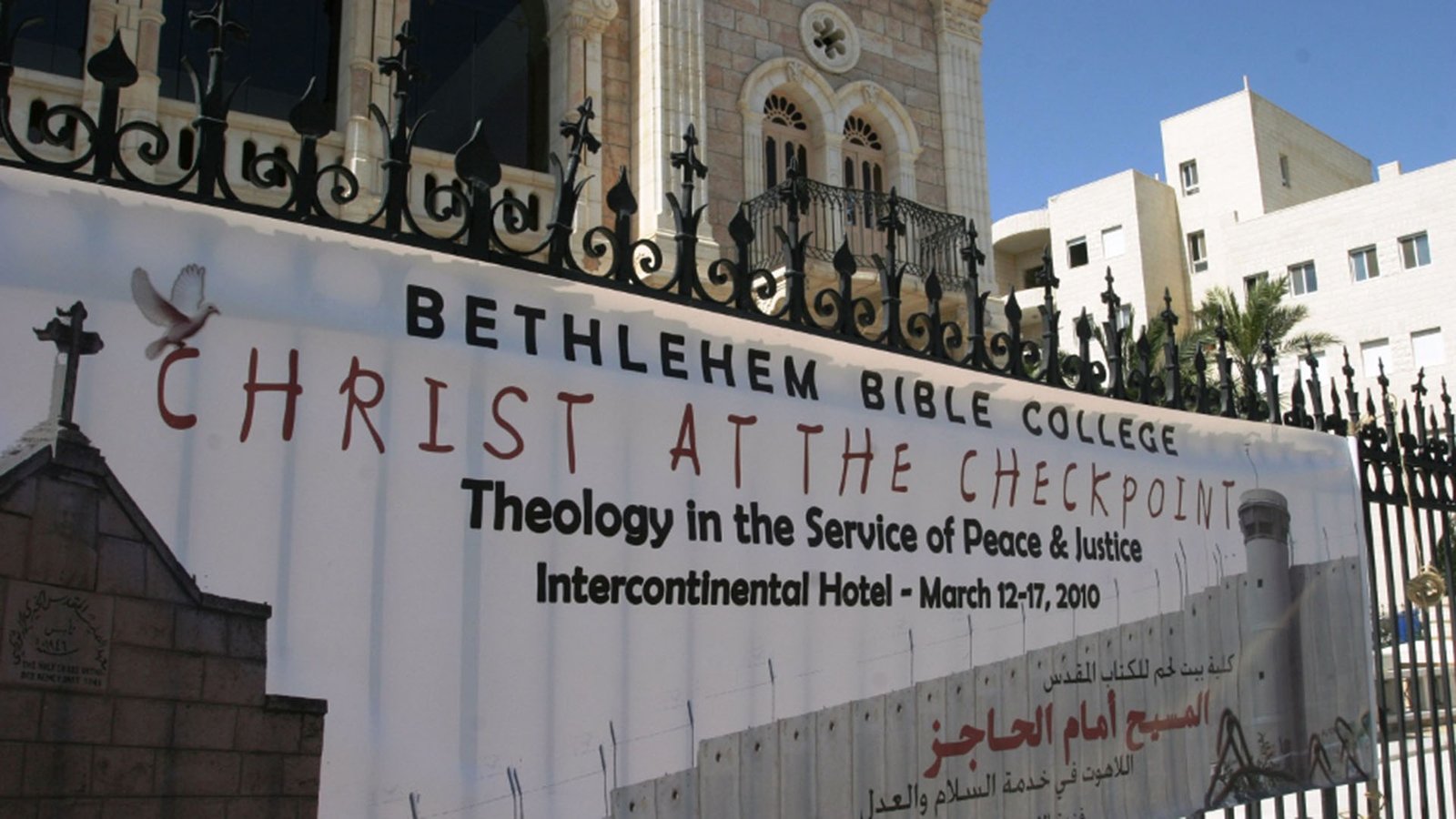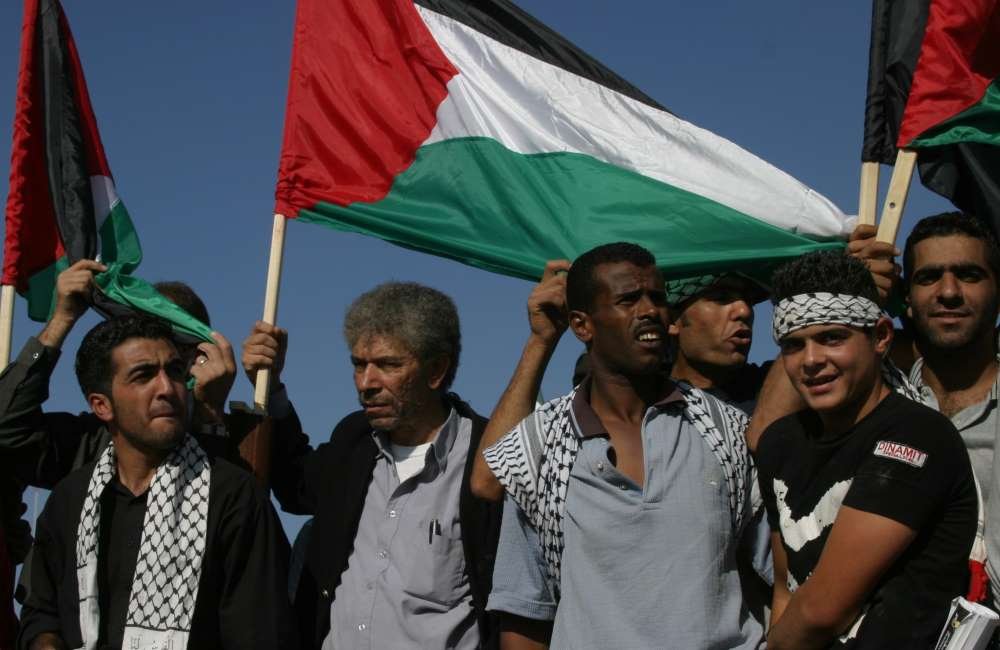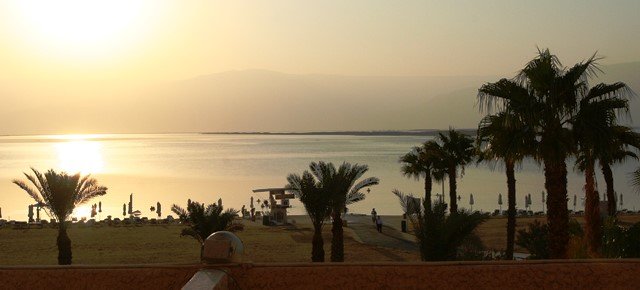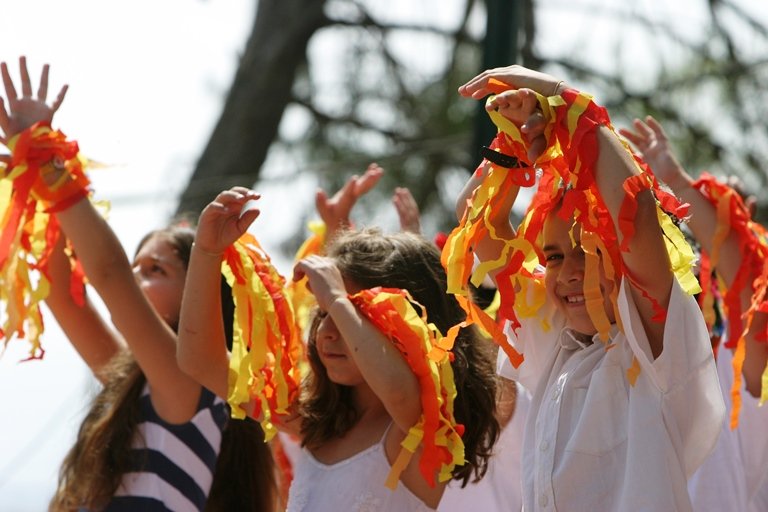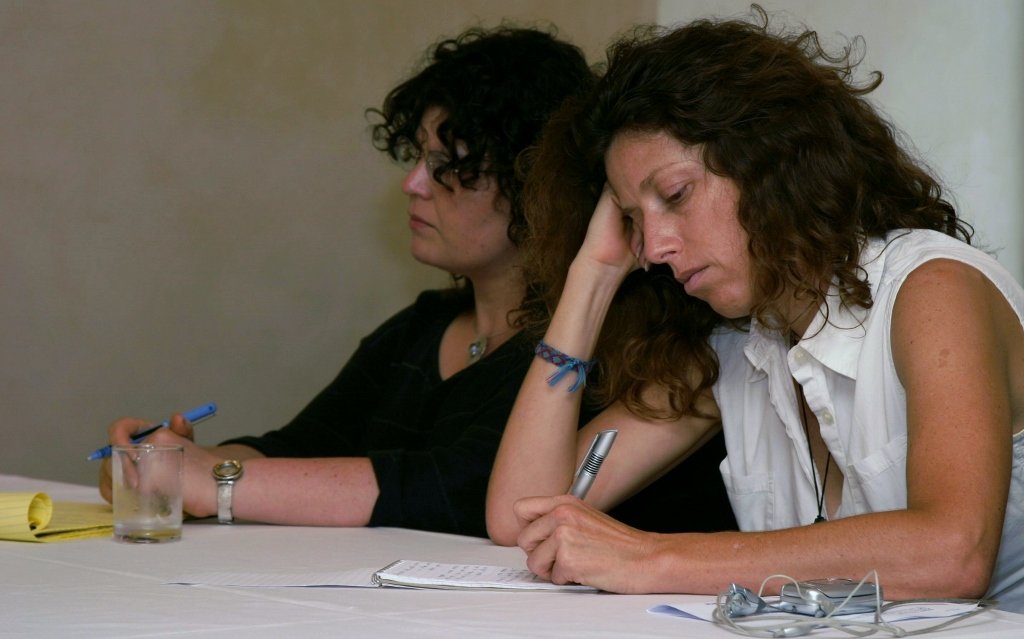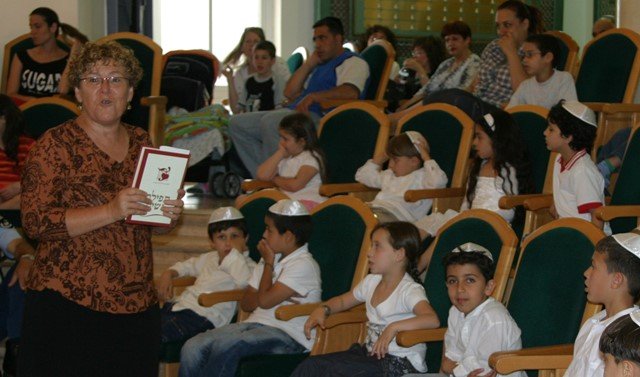Share This Story, Choose Your Platform!
On February 12, 2009, at a Dutch-Palestinian conference at Bethlehem Bible College the evangelical theologian Yohanna Katanacho[1] presented “Psalm 87 from a Palestinian perspective”[2].
A fine observation
A study of the Hebrew root ילד/yalad in the Psalms[3] led Katanacho to discover a fascinating pattern that is “useful for understanding Psalm 87 in a better way”[4]: Subsequent to “enmity” appears “divine activity in Zion” that includes “birth language” reflecting “a unique relationship with God”.[5] The whole scenario ultimately leads to an “eschatological image that includes the [Gentile] nations”[6].
A new word
Katanacho emphasized in his lecture that the “gentile nations […] have gone through a transformation in identity”. “They have become children of Zion and are now Zionites (sic)” (page 6). One decade later he writes about Psalm 87:6: These non-Israelites “receive a ‘Zionite’ status … their names are inscribed as ‘Zionites’”[7].
Yohanna Katanacho never tires of emphasizing his identity as Palestinian. Evidently he avoids the usual term “Zionist” when speaking of the “children of Zion”. “Children of Zion” are people who think and live in alignment with Zion because they are rooted there and see their future there. It is important to Katanacho that those Gentiles mentioned in Psalm 87 become “Zionites”, “not by force but by birth in the city established by (עליון), the global God”.[8]
A correct sequence
Just like the traditional Jewish interpreters before him, the Palestinian Christian observes the relation of Psalm 87 to the second part of the book of Isaiah. Katanacho writes: The Gentile nations “join Israel in worshipping God (Isaiah 66:20), and could even become priests and Levites (Isaiah 66:21)” (page 9).
It is noteworthy that Katanacho not only repeats the old rabbinical observation. He even underlines that the Gentile peoples are joining Israel – and not the other way around, that Israel joins the believing Gentiles, i.e. the Church, as Christian theology has expected for centuries.
In a further step, the Palestinian theologian shows that “a pattern that associates birth-language with the eschatological kingdom of God” may also be found in the New Testament.[9] Only those who are born anew out of water and the Spirit have a future in the kingdom of God (John 3:3-5). With this statement, too, the New Testament is thus in direct continuity with “Moses, the prophets and the Psalms” (compare Luke 24:44).
Katanacho correctly states what many Christians overlook: “Like Moses, he [David] uses the grace formula that highlights the basis of the Mosaic covenant.”[10] In fact, it is not the “sola gratia” of the Reformation that separates Christians from Jews. There was never a way to work out one’s own salvation before God through one’s own effort, or – to say it theologically – to be justified through works.
“Jewish” is “old” and “barren” …
Katanacho’s statements become problematic when he postulates “a new vision of Zion” (page 7). In the introduction to his chapter “Jerusalem Is the City of God. A Palestinian Reading of Psalm 87” he notes “that Psalm 87 provides a new understanding of Davidic theology.” It is important to note at this point that he does not make this statement concluding an exegetical study, but as an introduction to the interpretation and thus a prerequisite for understanding Psalm 87.
According to Katanacho, a “restorative eschatology of the ‘Jewish’ city of King David could no longer serve the people of God who were in exile. Instead, the psalmist presents a servant David who advocates a multiethnic Jerusalem. Only then would Jerusalem be a blessing, not a curse.”[11]
… and is replaced by “multi-ethnic”, “new” and “godly”
A few pages later, Katanacho claims: “The nations are transformed into the people of God”[12] – and thus de facto occupy the unique position that was previously reserved for Israel.
Indeed, the Palestinian Evangelical describes “the ingathering of Gentile believers worldwide into the church […] in contrast of barren Judaism” (page 11). He juxtaposes “fallen Israel” as “nominal citizens of Zion” with “a multicultural godly community who please God upholding His standards of righteousness and justice” (page 13).
Katanacho states quite correctly: “The people of God are called to bless the nations just like their father Abraham was called to be a blessing to the nations.” His perspective, however, becomes skewed as he continues: “Unfortunately, the holy family (Abraham and Sarah) who lived in the Holy Land failed to bless Hagar, who lived in their own home. Servanthood, not dominance, is the divine means for spreading the blessings.”[13]
The origin of Christian-Jewish hatred
Katanacho overlooks the trigger for the tensions between Sarah and Hagar (Genesis 16:4; 21:9) and God’s explicit declaration of purpose, especially in view of Ishmael (Genesis 17:18-19). Moreover, he ignores who tipped the scales in favor of Abraham’s decision to release Hagar and Ishmael into the uncertain freedom (Genesis 21:12).
From his Palestinian context, Yohanna Katanacho postulates an enmity of Israel against the Gentile nations. Perhaps he had in mind what Paul writes to the church in Thessalonica: The Jews “killed both the Lord Jesus and the prophets, and drove us out, and displease God and oppose all mankind by hindering us from speaking to the Gentiles that they might be saved so as always to fill up the measure of their sins” (1 Thessalonians 2:15-16; ESV).
However, Katanacho overlooks the fact that Psalm 2, for example, describes a rebellion of the Gentile nations “against the Lord and His Messiah” – not an enmity of the Lord and His Messiah against the non-Israelite nations. Therefore, I might suggest a fundamentally different, possibly even opposite conclusion for the current situation, as far as it can be drawn from Psalm 87.
Katanacho sees the founding of the modern state of Israel, explicitly in contrast to “most Westerners,” “as the catastrophe (Al Nakbah in Arabic) that violated God’s standards of love and justice” (page 14). According to the Palestinian narrative presented by Katanacho, the Nakba was caused solely by the immigration of Jews to the land between the Mediterranean Sea and the Jordan River and the establishment of a Jewish state in this area.
One might, however, interpret the available historical data in such a way that the Nakba was the consequence of the religiously and racially motivated hatred of Jews by the Arabs and their resulting rebellion against God’s plan. The hatred of Palestinian Arabs for their Jewish fellow citizens is demonstrably older than Jewish efforts to create their own state. This is often ignored, as is the fact that many anti-Jewish statements in Islam, which date back to its time of origin, can be traced to Christian Judaeophobic stereotypes.
Excluding Arab friends of Israel
Katanacho’s “Palestinian perspective” is an anti-Israel and anti-Jewish view that excludes, for example, the perspective of Arabs who identify with the Jewish state and consider it their homeland, not to mention Arab Christians or Muslim Zionists who interpret the return of the Jewish people to the land of Israel in a much more positive way.
To Katanacho’s conclusion, “No more shouts, ‘Death for the enemies.’ No more isolation from the ‘Other.’ No more eschatological programs that favor Jewish superiority while ignoring the Jews’ calling to be servants of God and a light to the nations,” one can only agree. Katanacho is absolutely right in rejecting all “xenophobic and inimical attitudes.”[14]
However, this rejection must apply to all racism and all nationalistically or religiously motivated expansionist ambitions – even if they emanate from Palestinians, Arabs, Christians or Muslims. When looking for historical origins of these unfortunate phenomena, it must not be concealed that the idea of assigning Jews to ghettos or forcing them to identify in public with a yellow patch on their clothes were inventions of the Arab world.[15]
Katanacho’s interpretation ignores the dreams, wishes, ideas, and stated intentions of his Christian and Muslim compatriots as well as those of his national-religious Jewish neighbors. Otherwise, he would probably have included the relevant statements taught in the Torah and Talmud schools of the settlements in immediate neighborhood to Bethlehem.
Thus, the Rav Kook Institute’s national-religious commentator on Psalm 87[16] writes: “In any case, the central message of this psalm is that Zion is the motherland of all those who come to it to serve the name of God, even if they are strangers, from very distant lands. The words of this psalm are a development and expansion of Solomon’s prayer at the dedication of the Temple (1 Kings 8:41-43; ESV): Likewise, when a foreigner, who is not of your people Israel, comes from a far country for your name’s sake (for they shall hear of your great name and your mighty hand, and of your outstretched arm), when he comes and prays toward this house, hear in heaven your dwelling place and do according to all for which the foreigner calls to you, in order that all the peoples of the earth may know your name and fear you, as do your people Israel.”
“And it is clear”, continues the national-religious commentator who is authoritative in many respects for the modern Israeli settler movement, “that both the words of Solomon and the statements of this Psalm do not apply only to the end times. Rather, they describe a reality of the days of the greatness and glory of the first Temple, whether those were the days of Solomon or Hezekiah, when foreigners came from distant lands to serve the Lord in Jerusalem.”
It is undisputed that there is racism, hatred of Arabs and religious arrogance among Jews and Israelis. More than half a century of war has left its mark on all involved, not to mention two thousand years of Christian persecution of Jews in Europe and centuries of oppression and discrimination against Jews by Christians and Muslims in the Arab world.
But instead of blurring historical facts, sweeping political and social realities in the Arab world under the rug, and for all this turning upside down causal connections in existing grievances, Jewish racists, especially if they justify their hatred religiously, may be pointed to the word of their own God and their own interpreters of Scripture.
After all, the Malbim[17] had already remarked on Psalm 87:2-3: “The love of the Eternal One for Israel and His glorious presence in their midst is not for their own sake.” The God who chooses Zion in His exclusive love has more in view than just “His favorite.”
In the preceding Psalm 86, David had stated in verses 9-10 (ESV): “All the nations you have made shall come and worship before you, O Lord, and shall glorify your name. For you are great and do wondrous things; you alone are God.”[18] This is the basic intention of Psalm 87, indeed of all Scripture. Through a unique way with Israel, God realizes His plan of salvation for all mankind. “For God has consigned all to disobedience, that He may have mercy on all” (Romans 11:32; ESV).
[1] Born in Jerusalem in 1967, Katanacho studied theology in Bethlehem (Palestinian Autonomy), Wheaton and Deerfield (USA). Today he is academic dean at Bethlehem Bible College (Palestinian Autonomy) and on-call pastor at the Baptist Church Nazareth (Israel) and the Alliance Church in Jerusalem. Katanacho is one of the authors of the “Kairos Palestine Document” and the initiators of the conference “Christ at the Checkpoint.”
[2] I was able to download the manuscript of Yohanna Katanacho’s lecture, “Psalm 87 from a Palestinian Perspective” on May 27, 2013 from the following address on the Internet: http://reserves.wheaton.edu/pdf/Jerusalem14.pdf. This address no longer works today. However, I have the original manuscript as a PDF file. If page numbers are given in the text as references, they refer to this manuscript of the lecture. In the anthology “The Land Cries Out. Theology of the Land in the Israeli-Palestinian Context,” edited by Salim J. Munayer and Lisa Loden (188 West 18th Ave., Suite 3, Eugene, OR 97401, United States of America: Wipf and Stock Publishers, www.wipfandstock.com, 2021), Katanacho commented on our subject once more on pages 181-199 under the title “Jerusalem is the City of God. A Palestinian Reading of Psalm 87”.
[3] The root ילד/yld occurs nine times in the Psalms (Psalms 2:7; 7:15; 22:32; 78:6; 87:4,5,6; 90:2; 110:3). Except for Psalms 2:7 and 90:2 it is embedded in eschatological language.
[4] Page 8, likewise Yohanna Katanacho, “Jerusalem is the City of God. A Palestinian Reading of Psalm 87,” in Salim J. Munayer and Lisa Loden (eds.), The Land Cries Out. Theology of the Land in the Israeli-Palestinian Context (188 West 18th Ave., Suite 3, Eugene, OR 97401, United States of America: Wipf and Stock Publishers, www.wipfandstock.com, 2021), 185.
[5] Yohanna Katanacho, “Jerusalem is the City of God. A Palestinian Reading of Psalm 87,” in Salim J. Munayer and Lisa Loden (eds.), The Land Cries Out. Theology of the Land in the Israeli-Palestinian Context (188 West 18th Ave., Suite 3, Eugene, OR 97401, United States of America: Wipf and Stock Publishers, www.wipfandstock.com, 2021), 187.
[6] Page 7, likewise Yohanna Katanacho, “Jerusalem is the City of God. A Palestinian Reading of Psalm 87,” in Salim J. Munayer and Lisa Loden (eds.), The Land Cries Out. Theology of the Land in the Israeli-Palestinian Context (188 West 18th Ave., Suite 3, Eugene, OR 97401, United States of America: Wipf and Stock Publishers, www.wipfandstock.com, 2021), 186-187.
[7] Yohanna Katanacho, “Jerusalem is the City of God. A Palestinian Reading of Psalm 87,” in Salim J. Munayer and Lisa Loden (eds.), The Land Cries Out. Theology of the Land in the Israeli-Palestinian Context (188 West 18th Ave., Suite 3, Eugene, OR 97401, United States of America: Wipf and Stock Publishers, www.wipfandstock.com, 2021), 188.
[8] Pages 6-7, likewise Yohanna Katanacho, “Jerusalem is the City of God. A Palestinian Reading of Psalm 87,” in Salim J. Munayer and Lisa Loden (eds.), The Land Cries Out. Theology of the Land in the Israeli-Palestinian Context (188 West 18th Ave., Suite 3, Eugene, OR 97401, United States of America: Wipf and Stock Publishers, www.wipfandstock.com, 2021), 185.
[9] Page 10, referring to Luke 2:8-14; John 3:1-21; 16:17-24; Galatians 4:21-31; Hebrews 12:18-29; James 1:18; 1 Peter 1:3-5 and Revelation 12:1-6.
[10] Yohanna Katanacho, “Jerusalem is the City of God. A Palestinian Reading of Psalm 87,” in Salim J. Munayer and Lisa Loden (eds.), The Land Cries Out. Theology of the Land in the Israeli-Palestinian Context (188 West 18th Ave., Suite 3, Eugene, OR 97401, United States of America: Wipf and Stock Publishers, www.wipfandstock.com, 2021), 194.
[11] Yohanna Katanacho, “Jerusalem is the City of God. A Palestinian Reading of Psalm 87,” in Salim J. Munayer and Lisa Loden (eds.), The Land Cries Out. Theology of the Land in the Israeli-Palestinian Context (188 West 18th Ave., Suite 3, Eugene, OR 97401, United States of America: Wipf and Stock Publishers, www.wipfandstock.com, 2021), 182.
[12] Yohanna Katanacho, “Jerusalem is the City of God. A Palestinian Reading of Psalm 87,” in Salim J. Munayer and Lisa Loden (eds.), The Land Cries Out. Theology of the Land in the Israeli-Palestinian Context (188 West 18th Ave., Suite 3, Eugene, OR 97401, United States of America: Wipf and Stock Publishers, www.wipfandstock.com, 2021), 186.
[13] Yohanna Katanacho, “Jerusalem is the City of God. A Palestinian Reading of Psalm 87,” in Salim J. Munayer and Lisa Loden (eds.), The Land Cries Out. Theology of the Land in the Israeli-Palestinian Context (188 West 18th Ave., Suite 3, Eugene, OR 97401, United States of America: Wipf and Stock Publishers, www.wipfandstock.com, 2021), 193, footnote 51.
[14] Seite 15. Yohanna Katanacho, “Jerusalem is the City of God. A Palestinian Reading of Psalm 87,” in Salim J. Munayer and Lisa Loden (eds.), The Land Cries Out. Theology of the Land in the Israeli-Palestinian Context (188 West 18th Ave., Suite 3, Eugene, OR 97401, United States of America: Wipf and Stock Publishers, www.wipfandstock.com, 2021), 195.
[15] For example, compare “Yellow badge” in Wikipedia. The Free Encyclopedia: https://en.wikipedia.org/wiki/Yellow_badge (09.04.2021).
[16] עמוס חכם, ספר תהלים, ספרים ג-ה, מזמורים עג-קן (ירושלים: הוצאת מוסד הרב קוק, הדפסה שישית תש”ן/1990), קכז.
[17] Meir Leibusch Ben Yehiel Michael Weiser (1809-1879) came from the Ukraine and worked as a rabbi, Talmudist, biblical expositor and preacher. During his time as rabbi in Kempen, Posen, (1845-1859) he was nicknamed “Kempner Maggid”. As a relentless opponent of the reform movement and the Jewish Enlightenment, the Malbim came into conflict with Jewish and non-Jewish authorities, was slandered and arrested. He officiated as chief rabbi of Romania, Königsberg and Mecklenburg. His biblical interpretation focuses on the “depth of language” and the “basic meaning of the text” “based on precise linguistic rules.”
[18] עמוס חכם, ספר תהלים, ספרים ג-ה, מזמורים עג-קן (ירושלים: הוצאת מוסד הרב קוק, הדפסה שישית תש”ן/1990), קכז.


